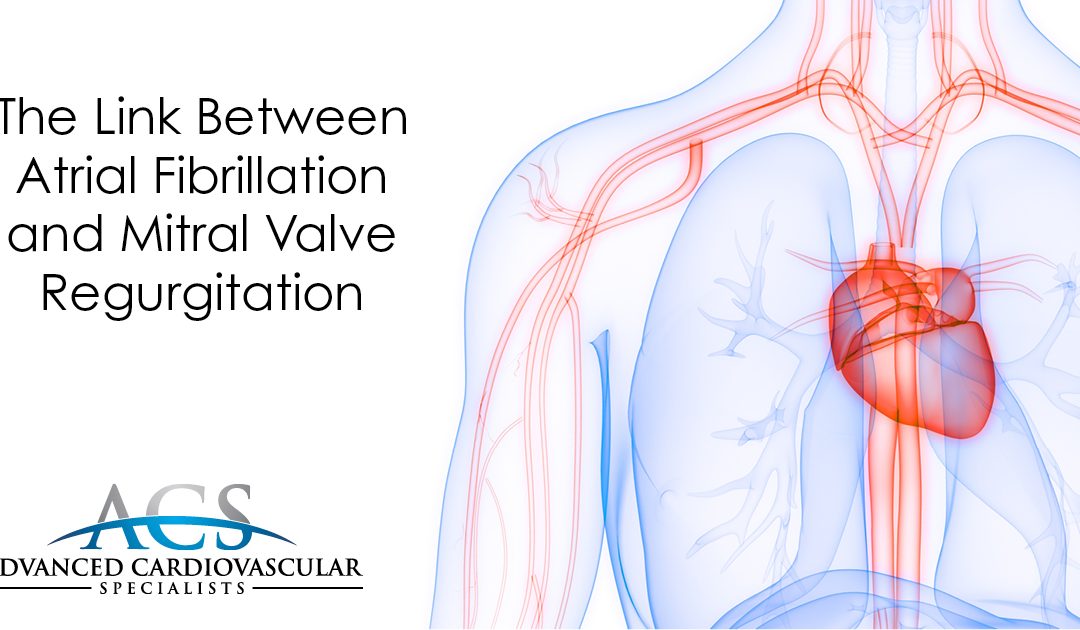Atrial fibrillation (AFib) and mitral valve regurgitation are common heart conditions that can occur separately or together. Patients with both of these conditions are at an increased risk of complications, such as heart failure, stroke and pulmonary hypertension. This is why it is important to be aware of the symptoms for early intervention.
What Is Mitral Valve Regurgitation?
Mitral valve regurgitation (also known as mitral regurgitation, mitral incompetence or mitral insufficiency) occurs when the valve between the upper and lower chambers on the left side of the heart doesn’t close properly. This can make it harder for the heart to pump enough blood.
Mitral valve regurgitation can happen for various reasons. It can be a result of damage to the mitral valve from other diseases or conditions, including heart attack, endocarditis, rheumatic fever or a congenital heart defect. A mitral valve prolapse is another cause of regurgitation in the mitral valve. It can also result from non-cardiac conditions, such as hyperthyroidism. However, this is often reversible with thyroid treatment.
Symptoms of mitral valve regurgitation include fatigue, shortness of breath, heart palpitations or arrhythmia, and swelling in the lower legs. Be on the lookout for these symptoms if you have already been diagnosed with AFib.
Mitral valve regurgitation may not require any intervention if it is mild. Medical and surgical treatments may be used when treatment for mitral valve regurgitation is needed.
What Is Atrial Fibrillation (AFib)?
AFib is the most common type of heart arrhythmia (irregular heart rhythm). In AFib, the upper chambers of the heart beat irregularly. That causes them to be out of sync with the lower heart chambers. The heartbeat is often fast as well as irregular. Many AFib patients have a resting heart rate of more than 100 beats per minute.
In addition to irregular and rapid heartbeat, patients may experience dizziness, shortness of breath, fatigue, weakness and chest pain.
AFib has many potential causes. Many of these are heart-related problems like high blood pressure, coronary artery disease, heart attack, heart valve disease or congenital heart defects. Sleep apnea, hyperthyroidism, lung disease and viral infections can also lead to AFib.
AFib can be treated with lifestyle changes, medications and cardiac procedures. It is important to seek treatment for AFib to reduce the risk of heart failure, stroke and other potential complications.
Mitral valve regurgitation can trigger AFib, so patients with mitral valve regurgitation should seek prompt evaluation if they experience irregular or rapid heart rhythms.
Although having one condition does not mean you will necessarily have the other, there is an increased risk for atrial fibrillation if you have mitral valve regurgitation and vice versa. Having both conditions can also make each condition worse. It is critical that patients with AFib or mitral valve regurgitation undergo regular checkups and follow all treatment protocols.
The team at Advanced Cardiovascular Specialists consists of North Louisiana’s leading experts in cardiovascular care. For more information or to schedule an appointment, please call our office at (318) 798-9400.

